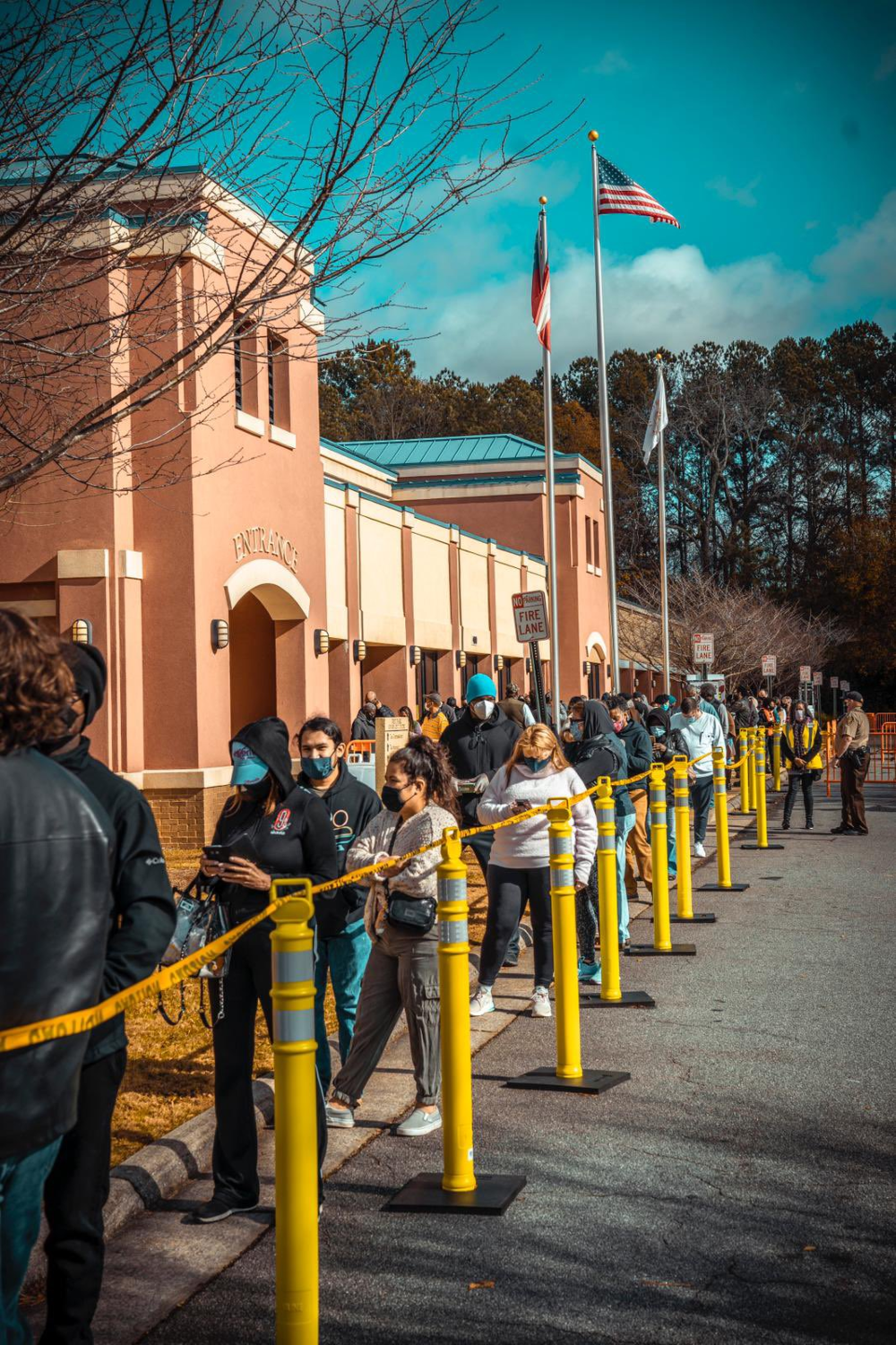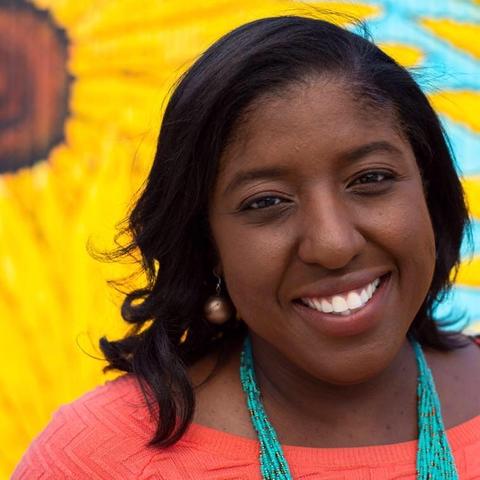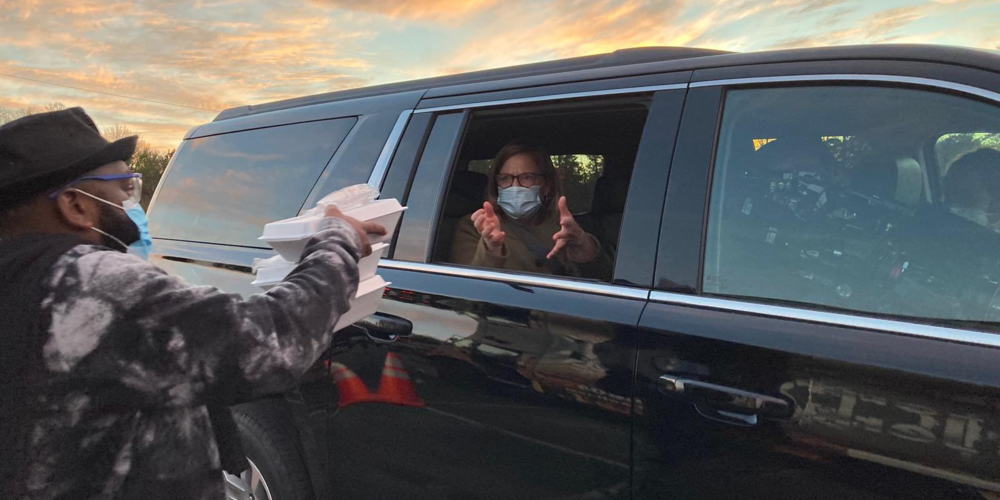
Caption
World Central Kitchen partnered with Georgia restaurants & food trucks to feed voters.
Credit: World Central Kitchen
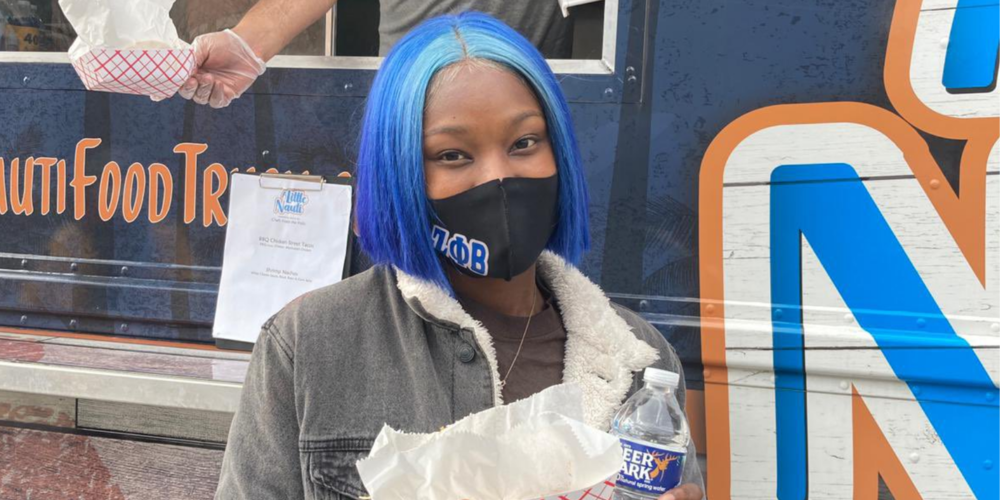
Caption
Seafood-themed food truck, A Little Nauti, feeding voters at the Smyrna Community Center.
Credit: World Central Kitchen
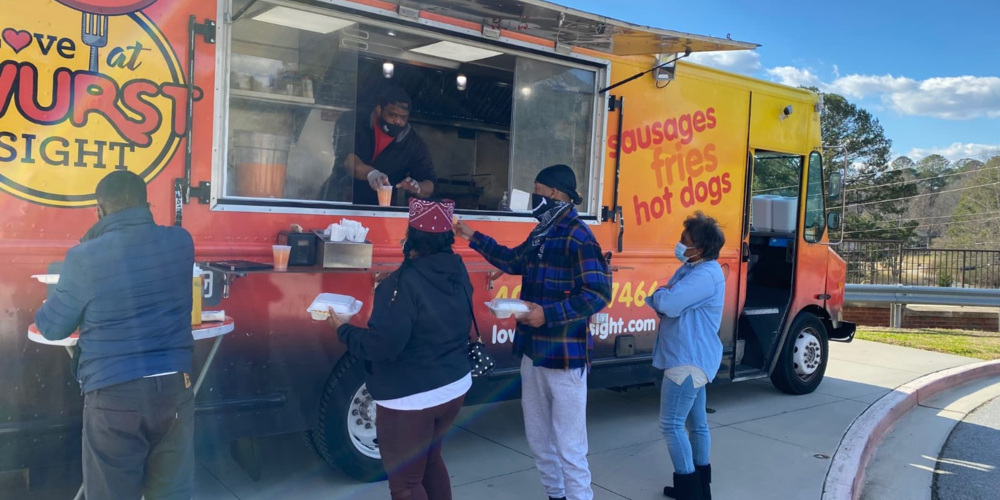
Caption
World Central Kitchen deployed its partnering chefs to help feed voters waiting in hours-long voting lines across Georgia.
Credit: World Central Kitchen

Caption
On an early voting day that saw snow flurries ahead of the January Senate Runoff, a food truck kept voters fed in Cobb County.
Credit: World Central Kitchen





